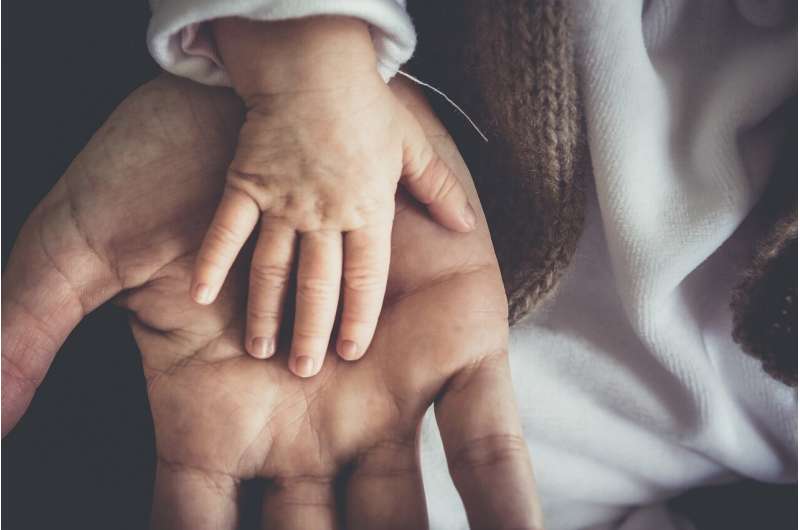Credit: Pixabay/CC0 Public Domain
Placing parents with children suspected of having illnesses such as meningitis nearer to the center of decision-making, simplifying health services, and ensuring children see the same health professionals will help accelerate treatment and reduce deaths.
This is according to research published by the University of Northampton (UON), University of Plymouth and partner organizations.
The Before Arrival at Hospital (BeArH) project looked at the pre-hospital journeys of children later diagnosed with a serious infectious illness such as meningitis and sepsis.
Researchers spoke with 40 parents and 30 health professionals, including hearing about the concerns raised by mothers whose children died from serious infectious illnesses such as sepsis after failures in the health system.
Infections such as these continue to be a major cause of childhood deaths in the UK, particularly in the first five years of life. The most recent analysis of child mortality data (from 2013–15) in England and Wales found that infection was associated with 20% of all childhood deaths (Ferreras-Antolín, Oligbu et al. 2020).
Researchers worked with parents and health professionals to understand what happens to children later diagnosed with a serious infectious illness, before they are admitted to hospital.
They asked about every point on the child's illness journey from falling ill at home, through all the contacts with health services up until they were admitted to hospital.
The research aimed to identify points in this journey where improvements could be made, to ensure timely treatment and, ultimately, save lives. The findings include:
- Parents feel powerlessness and a loss of control over their child's health and their access to treatment.
- Parents often report feeling criticized for using services in the early stages of the illness. This can lead to delay in seeking help again.
- Parents and health professionals both miss signs and markers of serious illness.
- The health system can be complex for both professionals and parents.
- There is a lack of continuity of the health professionals caring for individual children—few see the same professional when seeking help again.
- Risk averse agencies refer more suspected cases to hospitals, adding extra stress in the system. One emergency doctor quoted in the report commented: "We have made the haystack bigger. There is still only one needle, but the haystack is enormous."
The report outlines the need for further research into parents' consultations with health professionals to identify causes of perceived criticism.
It also suggests a feasibility study for a safety-netting app, reducing the complexity of services and improving the continuity of health professionals involved in the care of each child with a serious infectious illness.
Tash Bayes, Research Assistant at UON was BeArH's project manager. She said:
"We are very happy to share the important findings of the BeArH project, the implications for young children and their families and to outline our next steps. BeArH has been a multifaceted, multi-site project in collaboration with academics, health professionals, parents and charity organizations over three years. Their perspectives throughout the research were crucial; without them, conducting and completing BeArH would not have been possible."
Professor Sarah Neill from the University of Plymouth is chief investigator of the BeArH project. She said:
"During our research, we heard heart-breaking accounts from parents. I'd like to express my thanks to them for their time and courage in sharing their stories, and to the health professionals for lending us their valuable insights.The findings from the BeArH research provide important insights into the complex interplay of factors that influence the timing of treatment for these serious infectious illnesses.
"Parents, already distressed when their child is unwell, feel disempowered in the face of the established knowledge of health professionals in an overstretched service. For both, that system can be a complicated terrain to navigate. This can lead to a 'perfect storm' with tragic outcomes, ironically in a system designed to stop this. We hope that the BeArH findings and follow-up investigations will help to reduce child deaths."
More information: Before Arrival at Hospital (BeArH): Factors affecting timing of admission to hospital for children with serious infectious illness project. nectar.northampton.ac.uk/14927 … _illness_project.pdf
Provided by University of Plymouth























